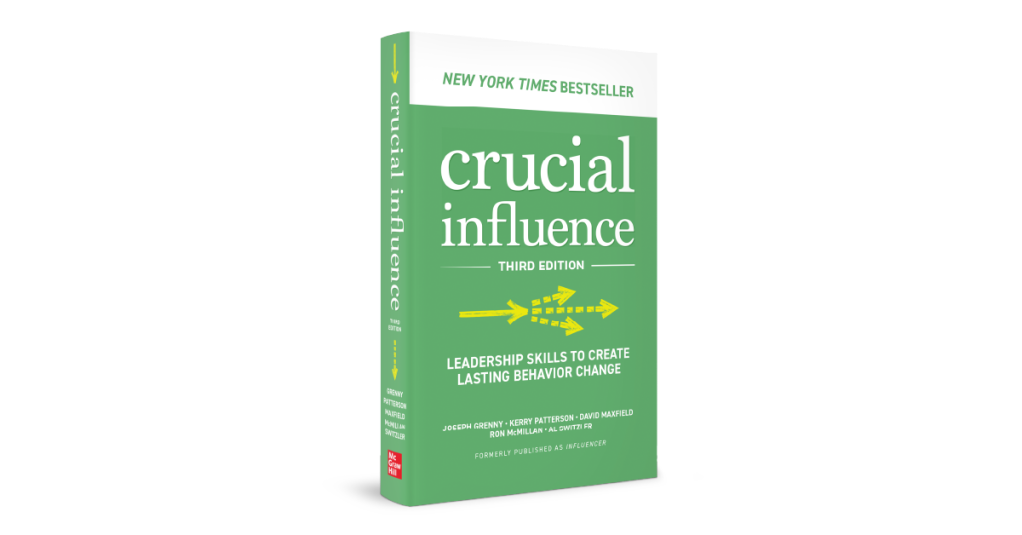I work with colleagues that seem to avoid Crucial Conversations. I think they are either afraid or doubt whether they’re in the position to speak up. How can I help them develop new perspectives on having difficult conversations and get them to at least try?
Crucial Influence Posts
My 14-year-old daughter was diagnosed with Type 1 diabetes last year and we are always fighting in the home about her sugar levels and eating habits. She screams and shouts and blames us for everything. I try to be firm and not give in to her tantrums, but my husband is disgusted with her and speaks ill of her. I want her to see a therapist, he says she’s a lost cause. This breaks my heart. What can I do?
How do you respectfully hold people accountable? We have clear standards for care, but some staff (and leaders) treat them as though they are optional. They aren’t! How do you hold someone accountable to the standard so they still feel capable, empowered, and motivated?
I love the Crucial Influence® Model, and I’ve been able to apply it to overcome hurdles and help others that I mentor. However, I struggle to apply the framework when it comes to personality types. I have received feedback from my managers that I need to be more action-oriented, but numerous personality tests tell me I am more of a “think first” person rather than an “act first” person.
Here is my question: Does personality relate to ability or motivation? If my personality is more “think first” and my boss is asking me to be more “act first,” how do I change my behavior while still being true to who I am?
Someone misses their deadline. People routinely show up late and cut out early. Your direct reports fail to adopt the new project management tool. The list goes on. These are just a few of the everyday challenges of a team leader. I know because I am one.
How do you address envy or jealousy in the workplace? To be specific, what can you do when a colleague reacts negatively to another colleague’s success? Or, even worse, what do you do when it progresses from the occasional nasty comment to outright sabotage?
Leadership is intentional influence. It isn’t the vacuous or mystical thing that so many writers claim. It is a systematic process of influencing human beings to achieve important results. It’s about mobilizing behavior in the service of valued goals. At the end of the day, if behavior isn’t changing, you aren’t leading.
On the main thoroughfare in my hometown is a greasy spoon called Callie’s Café. Like all greasy spoons, it specializes in comfort food, which is why I took my daughter there for a serious conversation. I thought the fare might make the dialogue more palatable.
How can I use the Six Sources of Influence to improve patient satisfaction scores at our hospital? Our scores average in the 70s, but when I talk to patients they tell us we are wonderful. I’d like patients to put that on the survey. We often see scores of 8 but get comments that suggest they think we deserve a 10. Any ideas?
For years I have used LEAN to improve the work my healthcare lab does. But I still have people who respond poorly to feedback and who only want to hear about chronic or dire issues, and I’m often met with “I’m only human.” How can I hold my team members to high standards and validate them so they don’t become disgruntled?
















